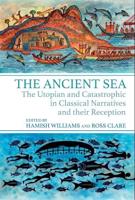Publisher's Synopsis
Modern Japanese Literary Studies brings together a broad range of interdisciplinary and institutional perspectives on the state of the field and presses for overdue recognition that Japanese literature is not only a national or East Asian literature, but also deserves equitable representation in the humanities. Modern Japanese literature today is read in unison with colonial and postcolonial literature, women's literature, LGBTQ literature, diasporic literatures, Indigenous literatures, visual cultures, and disability studies, and has made innovative contributions across the humanities. Bringing together sixteen scholars from North America, Asia, and Europe, this volume addresses Japan's place in global modernity and world literature; the changing definition of the literary within the national canon and area studies configurations; the increased prominence of manga and visual media studies; heightened sensitivity to issues of race, gender, sexuality, and LGBT studies; and the advent of ecocriticism, among other emerging paradigms. The primary objective of this book is to assess the field's study, teaching, research, and cataloging practices and identify challenges and opportunities for growth that lie ahead for the field amidst the ongoing crises that are reshaping the contemporary academic landscape.









